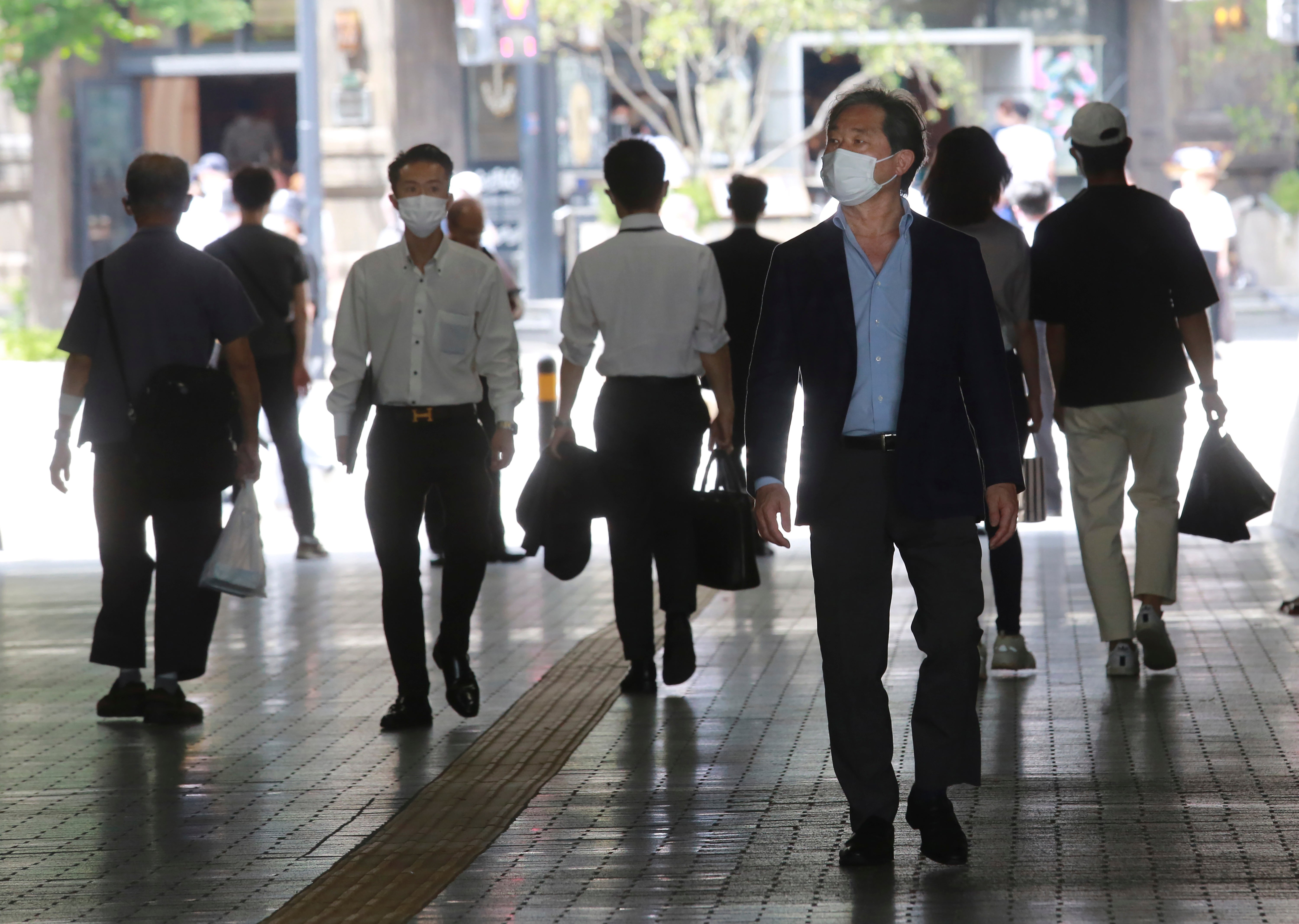Wearing a mask in a pandemic doesn’t mean you hate freedom – it’s about respect for others
Before Covid, I lived in Japan, where people wore masks routinely when they had colds or the flu – I see no reason not to do the same here


Your support helps us to tell the story
From reproductive rights to climate change to Big Tech, The Independent is on the ground when the story is developing. Whether it's investigating the financials of Elon Musk's pro-Trump PAC or producing our latest documentary, 'The A Word', which shines a light on the American women fighting for reproductive rights, we know how important it is to parse out the facts from the messaging.
At such a critical moment in US history, we need reporters on the ground. Your donation allows us to keep sending journalists to speak to both sides of the story.
The Independent is trusted by Americans across the entire political spectrum. And unlike many other quality news outlets, we choose not to lock Americans out of our reporting and analysis with paywalls. We believe quality journalism should be available to everyone, paid for by those who can afford it.
Your support makes all the difference.When I moved to Tokyo several years ago for work, one of the strangest cultural shifts to get used to was the fact that people wore masks when they were sick.
I’d find myself face-to-face in meetings and in casual conversations, struggling to make out the expression of the person in front of me, unsure how to negotiate the emotional balance in a room. That’s because – then – mask-wearing was utterly unfamiliar to me; a curiosity I put down to hypervigilance or a perceived societal “obsession” with hygiene; clearly not one we had to the same extent in the UK.
But, like so many things, it doesn’t take long for the unknown to become habitual, and I swiftly became accustomed to the fact that when my Japanese colleagues and friends needed to sneeze or to blow their noses, they’d duck their heads and disappear beneath the table to do so, for fear of releasing any germs in my (unmasked) direction. The message was clear: people would do anything to avoid infecting someone else when they had a nasty cold or the flu.
Fast forward 10 or so years, and we find ourselves au fait with mask-wearing. Since Covid, in the UK – like Japan – we’ve become accustomed to keeping one in our pockets and wearing them when we are most likely to come into close contact with other people: in shops, on public transport, in offices and cafes and restaurants.
But here’s where the rhetoric (and sense of personal responsibility) appears to differ. In certain sections of our society, reaction to the prime minister’s announcement last night – Boris Johnson confirmed that as of “Freedom Day” on 19 July, mask-wearing in England will cease to be mandatory – was one of jubilation. It was sad to see celebration spread on social media; to realise that some British people don’t really seem to care that much about the risk of infecting other people, even during a global pandemic.
And that’s despite the facts: that Covid is far from over and cases are rising, that we are dealing with new variants with greater transmissibility, that not everyone has been vaccinated – particularly the young, who are at increased risk of catching the virus and spreading it.
Even before yesterday’s announcement, you could see “mask rebels” all around you – particularly on public transport, including the Tube. They have been a minority, for sure – most people have been considerate of the risks, particularly to the vulnerable, and it’s been rare to see completely bare faces in supermarkets or on buses and trains – but a distinct one. “Freedom Day” is now set to give some people the excuse they craved to choose selfishness over a small inconvenience.
We should all continue wearing masks when we’re in close confines with other people, well beyond 19 July. That’s because wearing a mask in a pandemic doesn’t mean you “hate freedom” – it’s about respect for others. It’s about recognising that while we might not feel sick, we could be. We could be asymptomatic Covid carriers; we could be vaccinated yet still capable of transmitting the virus – whilst not exhibiting any of its worst effects. And if we find ourselves Covid-free – yet ill with a heavy head cold or the flu – we should wear masks then, too.
People in other countries such as Japan have been routinely wearing masks to protect each other for years. It’s time for Britain to step up and stop complaining, start being truly selfless and do the same.
Join our commenting forum
Join thought-provoking conversations, follow other Independent readers and see their replies
Comments